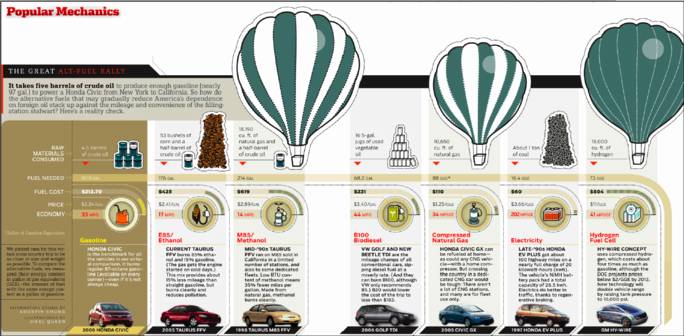Re: The great biofuel fraud
It's the creation and transportation of Ethanol that uses quite a bit of oil. Growing grain and transporting that grain is a huge energy sink, because of all the oil involved, fertilizer, pesticides, cultivation and transportation all use a lot of crude. Last I looked unleaded gas was wholesaling at about $2.20, I've never seen an ethanol chart, I can't imagine it's any cheaper.
Originally posted by c1ue
View Post


Comment